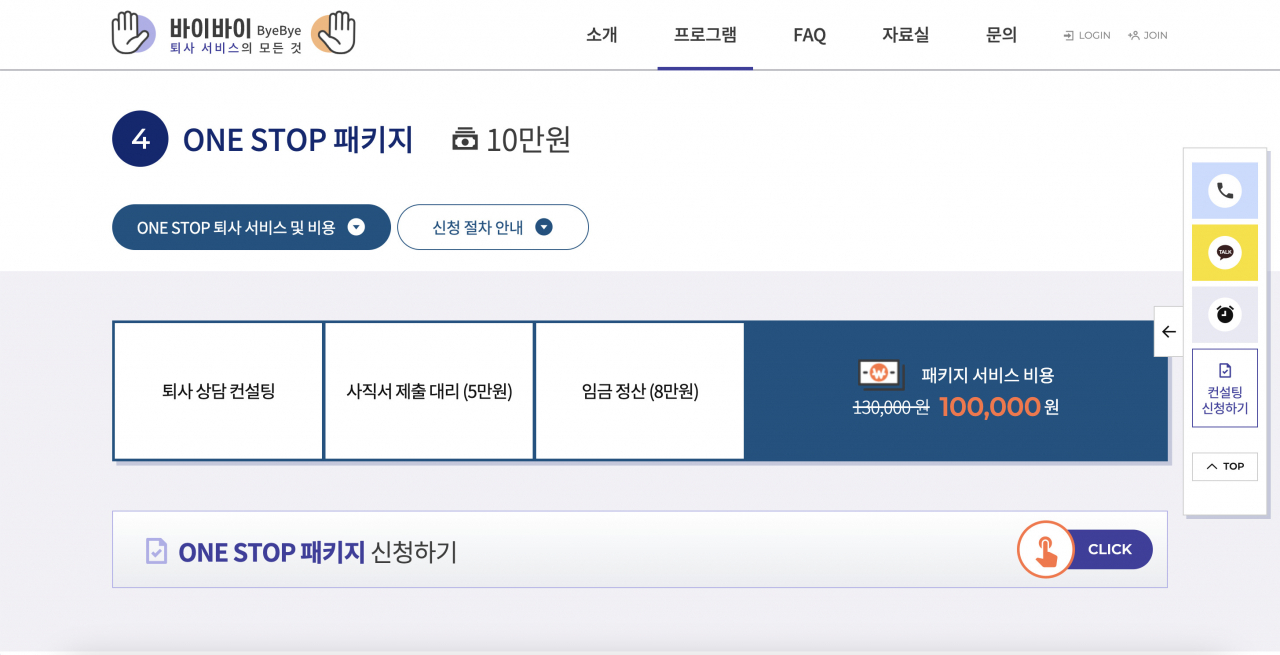
“I’d like to quit my job”
It's a phrase that numerous workers have likely rehearsed silently in their minds on more than one occasion.
However, the challenge lies not only in mustering the courage to vocalize these words in front of superiors, but in ensuring one's resignation is taken seriously, not brushed off as a mere complaint, and being let go without too much hassle.
Kwon, a 27-year-old who works at a packaging company, is experiencing such difficulties now. Not happy about the workload, she has expressed her will to quit several times, but has not been able.
“Since my contract says that I must give the company at least a one-month notice prior to my preferred job termination date, I did that. But they told me that a month isn’t enough to find a replacement, so they told me they needed more time,” Kwon said in an interview.
Kwon has since found out that the company was not even trying to find a replacement, instead looking for excuses to make her stay longer.
Of course, all working individuals in Korea have the right to quit. No company has the authority to prevent someone from quitting.
Yet, what holds workers like Kwon back is the fear that an unamicable separation could mean trouble in getting out benefits and funds, like severance pay, which they are entitled to.
“I did consider just not showing up at work for a while,” said Kwon. “But I found out that the company could mark me as being absent without due notice, which could mean problems in receiving severance pay in the future.”
Another worker with trouble quitting her job is a 24-year-old woman surnamed Lee, who teaches English at a private academy. Lee has had a few disagreements with her boss and has wanted to quit for some time.
“My boss has very high expectations for my job that I can’t live up to. We’ve argued several times about what my classes should be like,” said Lee.
“I felt that she should hire a different teacher who can arrange their classes to what she wants them to be like, so I’ve numerously said that I wanted to quit. But whenever I said that, her attitude toward me would suddenly change, and she’d start complimenting me in front of everyone about what a great teacher I am -- making me feel bad for wanting to quit in the first place.”
For a peaceful goodbye
For workers like Kwon and Lee in Korea, a new professional service has emerged. They do the quitting on behalf of their clients.
Seoul-based labor law firm ByeBye is a pioneer in the service.
ByeBye offers several services that help workers say “so long” to their companies peacefully. Their “one-stop package” includes a consultation with the firm’s lawyer, delivery of the letter of resignation to the client’s company and the collection of whatever the client is due to receive upon resignation.
The entire service, including legal consultation, is done online or via phone at a set price of 100,000 won ($76). Workers can also choose to use just one of the three services at a cheaper rate.

“I noticed that there were several platforms that help people land a job, but none that help them quit,” said O Se-gyeong, ByeBye’s head labor lawyer about how he came to start the service.
“According to our recent survey, around 80 percent of workers in Korea have thought about quitting their jobs at least once in their life. But around 30 to 40 percent of them were unable to do so because their company refused to process their letter of resignation. ByeBye works to help workers and employers like such to settle a peaceful goodbye with each other.”
If the entire process resumes smoothly, O boasts that workers can quit within a day or two.
Young Koreans struggle with confrontation
Most of ByeBye’s clients are in their 20s and 30s and work in small companies with fewer than 100 people, explained the chief.
According to statistics provided by ByeBye on their website, out of 211 clients, there were 75 in their 20s and 98 in their 30s who used the firm’s service from 2021 to April this year. Additionally, 145 clients out of 211 were from companies with less than 100 people.
O mentioned that some clients seek ByeBye’s assistance not because their boss refuses to let them go, but to avoid confrontation.
“I had a client recently who said she frequently had arguments with her boss, and that she was suffering depression from it. She contacted us to avoid escalating the conflict further.”
The service was made available to the public in 2020, but recently gained popularity via exposure in local media. Reactions from the public have been sharply divided as to why a third party’s input is necessary for quitting a job.
“We’ll face many situations that we would like to avoid or run away from in life. But no matter what your reasons may be, shouldn’t you be the one who starts and ends a relationship that you have with others in person?” read an online comment.
Professor Kwak Keum-joo of Seoul National University’s department of psychology sees a tendency of the younger generation to avoid uncomfortable, awkward situations as much as possible.
“Since the COVID-19 pandemic, the younger generation was exposed to contactless services more than ever, which helped them to avoid uncomfortable situations with others,” says professor Kwak.
“Without a doubt, saying that you want to quit your job to your boss is an uncomfortable situation. This is why a service that will quit your job for you without you having to confront your boss in person is increasingly becoming popular amongst the younger generation.”




![[Music in drama] Rekindle a love that slipped through your fingers](http://res.heraldm.com/phpwas/restmb_idxmake.php?idx=644&simg=/content/image/2024/05/01/20240501050484_0.jpg&u=20240501151646)

![[New faces of Assembly] Architect behind ‘audacious initiative’ believes in denuclearized North Korea](http://res.heraldm.com/phpwas/restmb_idxmake.php?idx=644&simg=/content/image/2024/05/01/20240501050627_0.jpg&u=20240502093000)




![[KH Explains] Will alternative trading platform shake up Korean stock market?](http://res.heraldm.com/phpwas/restmb_idxmake.php?idx=644&simg=/content/image/2024/05/01/20240501050557_0.jpg&u=20240501161906)







![[Today’s K-pop] Stray Kids go gold in US with ‘Maniac’](http://res.heraldm.com/phpwas/restmb_idxmake.php?idx=642&simg=/content/image/2024/05/02/20240502050771_0.jpg&u=)